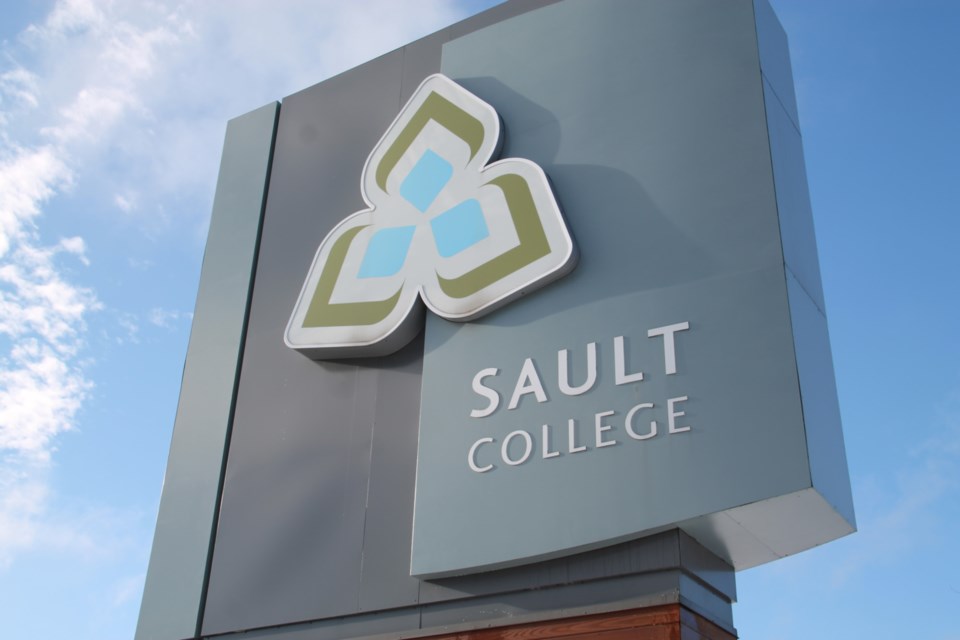City council has thrown its support behind Sault College in its attempt to have the federal government reconsider its recently announced two-year cap on the number of international students entering Ontario and the rest of Canada.
Council unanimously passed a resolution Monday urging the federal government to reconsider its international student policy changes.
The cap, introduced Jan. 22, will take effect beginning in the 2024-25 academic year and involves a 35 per cent overall reduction in new study visas.
In Ontario, the cap could reach 50 per cent or more.
The government's response has put a spotlight on significant international enrollment at both Sault College and Algoma University, whose Brampton Campus has seen massive growth in recent years. Of the 5,400 students enrolled there, roughly 92 per cent are in the country on student visas.
Sault College has approximately 2,300 students enrolled at its main Northern Avenue campus, including approximately 1,000 international students.
TriOS College, Sault College’s public-private partnership college in Toronto, has approximately 2,800 international students.
Of greatest concern to Sault College is that students at its partner campus will no longer be eligible for a post-graduate work permit (though students at the Sault campus will).
That will lead TriOS students to enrol elsewhere and lead to a loss of $40 million for Sault College.
That’s approximately one-third of the college’s $125 million budget.
“The real issue is not in the fact that the federal government has made changes to the number of study permits that will be issued to provinces across Canada but in the additional step that they have taken by removing the eligibility of the post-graduate work permit being issued to public private partner colleges,” said David Orazietti, Sault College president addressing council Monday.
“If those post graduate work permits are not available to them even though they’ve successfully completed their programs they will not enrol in these partner colleges. If they don’t enrol, these schools will not make the revenue that they need to exist, and they will not flow us roughly $40 million to our budget.”
Other Ontario colleges have public private partner colleges and face the same dilemma.
Orazietti said the loss of $40 million to Sault College could hurt its 720 employees and $43 million in payroll, all of which benefits the Sault’s economy.
“We’ve had an all staff meeting this past week to reassure everyone that we’re doing all we can to address this issue but it would be inappropriate for me to suggest it would be business as usual without that much of our budget being impacted,” Orazietti said.
He added that international students themselves - working for local employers while attending college and after graduation - also help the Sault’s economy.
The federal government’s cap on student visas was announced as a crack down on some colleges that take advantage of international students by providing a poor education and also because of Canada's housing shortage and concerns over where international students would live.
It came not long after Sault College announced it wants to build a new residence.
“The money from our partnership is going to be used to help us finance and pay for exactly the thing that the federal government is concerned about, which is building more housing capacity,” Orazietti said.
Council also unanimously approved a request to the provincial government to bring in a Blue-Ribbon Panel report’s recommendations regarding post-secondary education.
The Progressive Conservative government introduced a 10 per cent tuition cut in 2019 and did away with the former Liberal government's free tuition program for low and middle-income students.
That freeze forced post-secondary institutions to increase their dependence on much higher international student tuition fees.
An Ontario Blue-Ribbon Panel delivered a government-commissioned report in Nov. 2023 urging the Ford government to end its post-secondary tuition freeze and increase per-student funding to its universities and colleges.
Those tuition rates remain frozen.
“It’s making it challenging. I don’t think too many sectors are operating on 2015 budgets these days,” Orazietti told council.
“The Blue-Ribbon Panel report needs to be implemented. We’re doing this on frozen tuition, lower tuition all the way around and really getting squeezed so I expect the provincial government to do a lot more on this file and make the investments that help to really drive our economy.”
“You’ve certainly got my support,” Sault Mayor Matthew Shoemaker told Orazietti and a Sault College delegation before council passed both resolutions.
